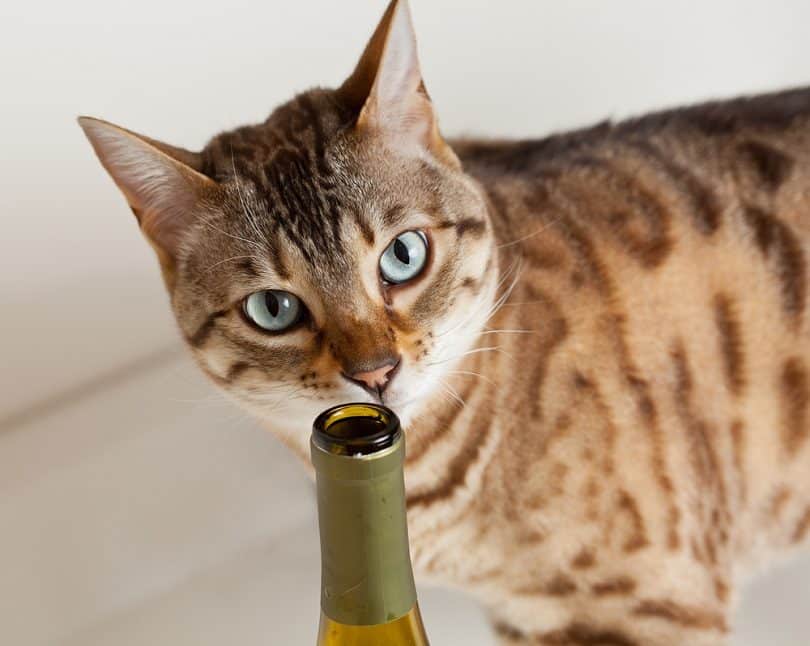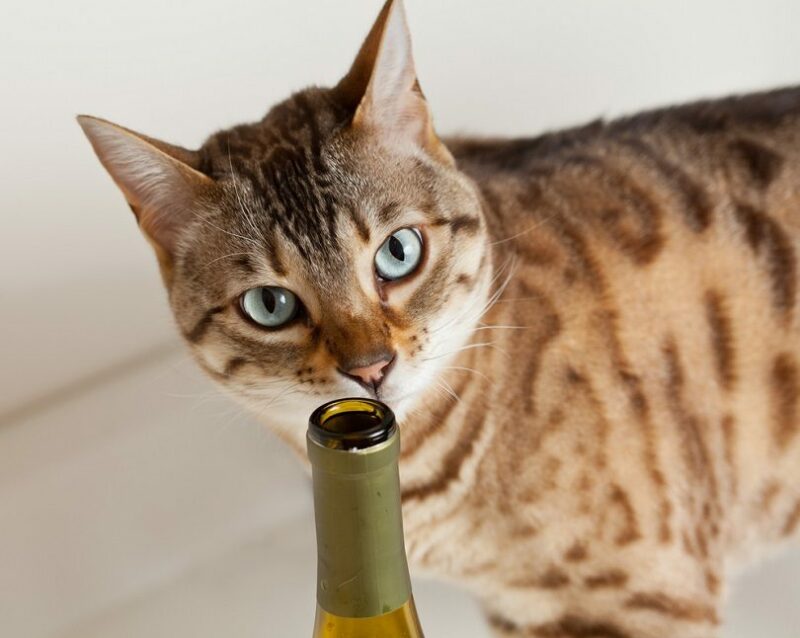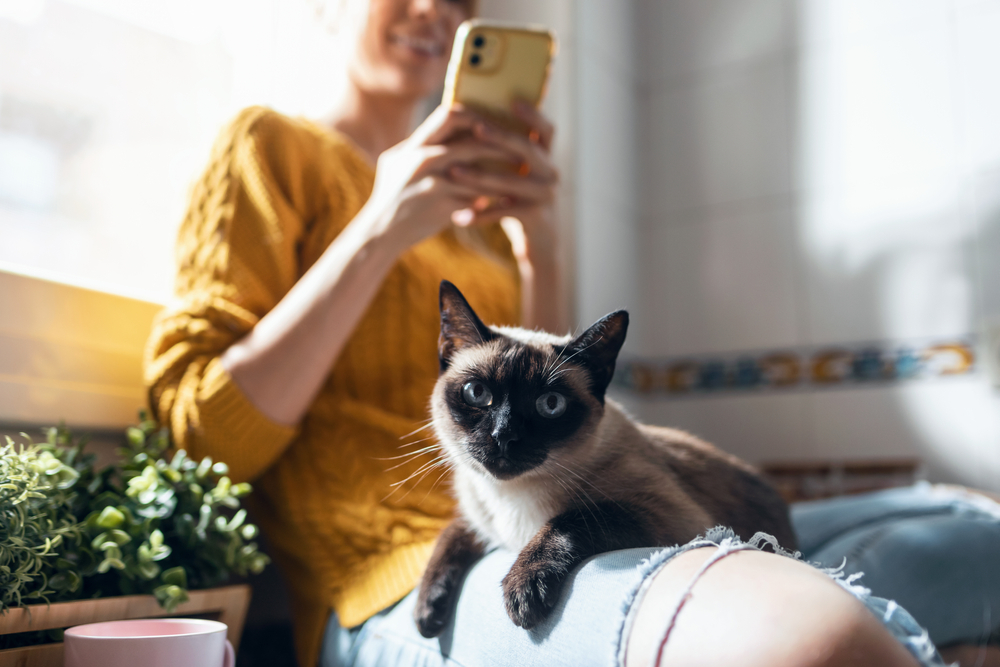Most of us consider our cats best friends, but who would imagine they could be drinking buddies? A few years ago, that idea might have sounded ludicrous. But ever since cat wine appeared in Japan, our furry friends have been able to keep up and drink during special celebrations.
Responsible owners are likely questioning the thought of giving their cats a potent potable like wine. Indeed, the cat’s version differs from the typical glass of merlot, giving your pet a safer and more satisfying concoction.
Is Japanese Cat Wine a Real Thing?
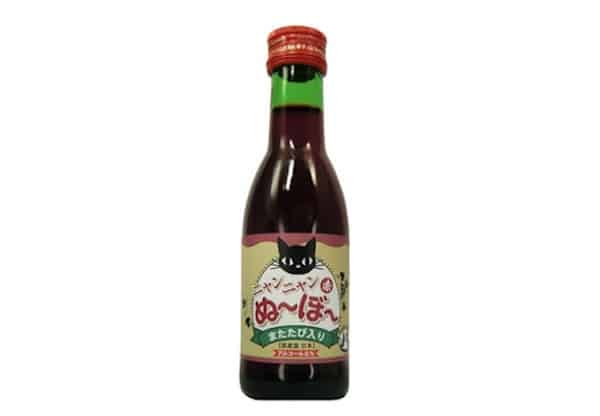
Japanese cat wine debuted in 2013. B&H Lifes, a pet goods supplier specializing in dog and cat-friendly drinks, created a non-alcoholic beverage called Nyan Nyan Nouveau. “Nyan Nyan” references Beaujolais Nouveau, a French wine that gained notoriety in—you guessed it—Japan!
Before releasing their cat-focused libation, B&H Lifes already had a menu of doggy delights. According to the company, the new Nyan Nyan drink answers the call from many cat owners demanding a broader range of appropriate gifts for their feline friends.
What Does Japanese Cat Wine Taste Like?
B&H Lifes mixes vitamin C and Cabernet grape juice with catnip to make their drinks as attractive to cats as possible. Cat wine is alcohol-free, but although it makes for a fun novelty, it isn’t something to offer cats as a replacement for plain old water.
Is Cat Wine Safe for Cats?
Despite the seemingly harmless ingredients, cat wine is far from the healthiest of drinks. While grape toxicity is well-documented in dogs, research suggests cats can suffer similar acute kidney injury from ingesting the fruit. Fortunately, the incidence is relatively low, though more immediate signs of GI distress may occur, such as vomiting, diarrhea, or a decreased appetite.
The small amounts of vitamin C in cat wine can have potential, albeit limited, health benefits. But in general, cats don’t have the same dietary need for it as humans. Cats meet most of their daily requirements by synthesizing it as they metabolize glucose, making supplementation redundant for many healthy animals. Besides, if you’re only buying cat wine for the vitamin C content, plenty of healthier, cheaper, and tastier options can satisfy your cat.
Do Cats Like Their Wine?
While many humans like to reach for wine when looking to unwind, we can’t say the same for our feline companions. When B&H Lifes launched their cat wine, they only produced 1,000 bottles to introduce to the market.
It wasn’t necessarily trying to be exclusive. Initial testing wasn’t positive, and since only the rare cat would find it favorable, the company didn’t anticipate it being more than a fun, one-time purchase.
Who Makes Japanese Cat Wine?
Despite the lukewarm reception from the target audience, the cat wine dream hasn’t died. B&H may have been the innovator, but others have seen the potential in this highly niche market. Now, PetWineShop produces their tantalizing trademark tastes directed at cats, including:
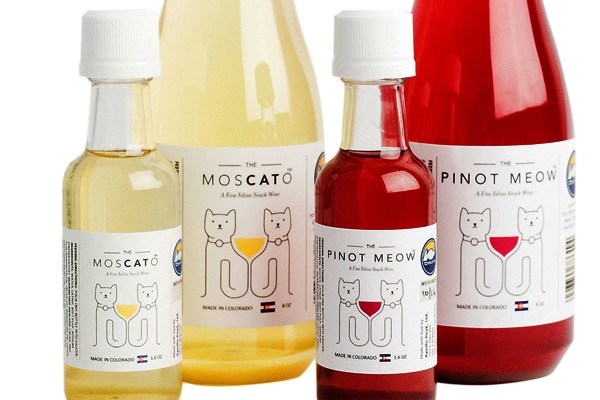
While Japanese cat wine wasn’t a massive hit with most of the cat community, PetWineShop boosts the palatability with coat and skin-enhancing Alaskan fish oil in catnip-infused filtered water.
But do cats enjoy this latest variety more than the original cat wine? Again, reviews are mixed. Cat wine is still more for owners than the pets themselves. It’s a cute joke to make them seem more human-like, and it likely won’t be a huge hit with any cat.
Final Thoughts
Cat wine can make a funny present for your pet or a special cat lover. Will it be a regular item in your home? Given the inconsistent feedback from owners, the answer is “probably not.” Even if your cat loves it, the low nutritional value should stop you from making it a frequent feature in your cat’s bowl. You can give it as a gift or a gag, but cat wine should rarely be more than a once-in-a-great-while offering.
Featured Image Credit: Steve Heap, Shutterstock

